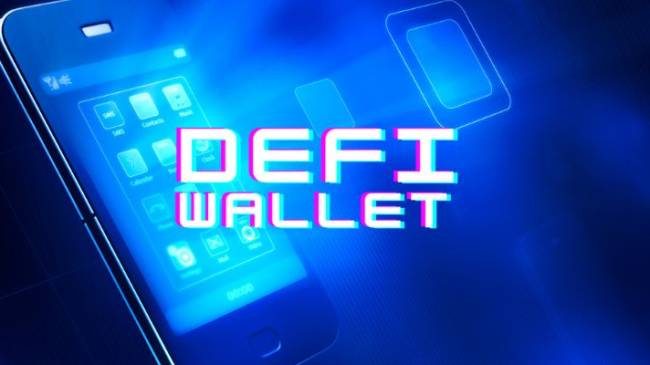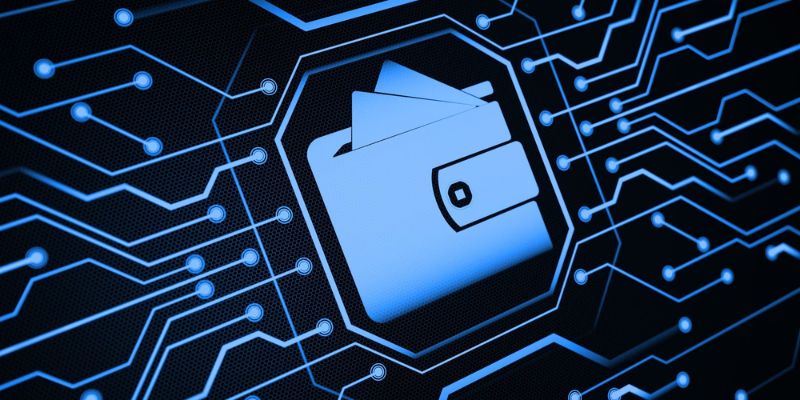Categories: General Information
What Are DeFi Wallets and How Do They Work?
What is a DeFi Wallet? How does a DeFi wallet work? Are DeFi wallets safe? How to choose the best DeFi wallet? Follow this article for more details.
DeFi wallets are an essential component of the decentralized finance ecosystem. These wallets are designed to securely store, manage, and interact with decentralized finance applications and protocols. They allow users to easily access and manage their decentralized assets, such as cryptocurrencies and other digital assets, without relying on traditional financial institutions. In this guide, we'll explore the different types of DeFi wallets and how they work. We'll also discuss the importance of wallet security and best practices for securing your DeFi assets.
Table of Contents
What are DeFi wallets?
In the realm of cryptocurrency, a "wallet" serves as a secure repository for your digital tokens. While there are various kinds of wallets available, one of the most sought-after options is a DeFi wallet, also referred to as a Crypto Browser Extension when integrated into your web browsers like Chrome or Brave.
DeFi wallets are purposefully designed to store Decentralized Finance (DeFi) tokens, otherwise known as cryptocurrencies. If you are considering exploring cryptocurrency, or if you want to improve the way you safeguard your tokens, then it may be worth considering a DeFi wallet.
DeFi wallets are user-friendly and come with several advantages compared to other wallet types. The DeFi ecosystem presents a broad spectrum of services and products, including lending and borrowing platforms, stablecoins, and tokenized BTC. In this write-up, we will examine DeFi wallets in greater detail, highlighting why they are so prevalent. We will also delve into the distinctive features that DeFi wallets offer and provide helpful tips to guide you in choosing the right one for your needs.

How does a DeFi wallet work?
The way a DeFi wallet works is similar to other types of digital wallets. Users download and install the wallet app on their devices, such as a desktop, mobile device, or browser extension. Once the wallet is set up, users can access their accounts by entering a password or other security credentials.
One of the key features of a DeFi wallet is that it allows users to interact with DeFi applications in a decentralized manner, meaning that transactions are processed by smart contracts on a blockchain network instead of through a centralized intermediary like a bank or exchange. This enables users to maintain control over their funds and access a wider range of financial services that are not available through traditional financial institutions.
When using a DeFi wallet to interact with DeFi applications, users typically initiate transactions by submitting requests through their wallet. For example, a user might use their wallet to deposit funds into a DeFi lending protocol, which would be processed by a smart contract on the blockchain network. Users can also monitor their account balances, view transaction histories, and manage their cryptocurrency holdings directly from their wallets.
Are DeFi wallets safe?
A DeFi wallet is an essential tool for anyone who holds digital currency. It provides a secure and reliable way to store your coins, ensuring that they are always accessible whenever you need them. The safety and security of a DeFi wallet make it a preferred choice for investors looking to keep their coins safe from theft or hacks.
One of the key security features of a DeFi wallet is its use of encryption technology. This technology ensures that your coins are protected by encoding them with a unique code that only you can access. This means that even if someone were to gain access to your wallet, they would not be able to steal your coins.
Additionally, the storage of your data on the blockchain provides an additional layer of security. The blockchain is a decentralized, distributed ledger that records all transactions made on the network. This means that even if one node in the network were to be compromised, your data would still be secure on the other nodes. Furthermore, the use of multiple nodes makes it virtually impossible for anyone to tamper with the data on the blockchain.
If you lose your device or it gets stolen, a DeFi wallet also allows you to back up your data. This ensures that you always have access to your coins, even if something happens to your device. It is important, however, to always practice good security habits, such as using a strong password and two-factor authentication to further protect your account.
When choosing a DeFi wallet, it is important to select one that encrypts your private data on your actual device, whether it be a mobile device or a desktop computer. This ensures that only you can access your data, making it more difficult for hackers to steal your coins. By taking these steps, you can rest assured that your digital currency is secure and protected.

How to choose the best DeFi wallet
When it comes to selecting a cryptocurrency wallet, you may be overwhelmed by the many options available, making it difficult to determine which one is best for you. That said, there are a few key factors to consider that can help make the decision-making process more manageable.
One of the most critical factors to consider when choosing a wallet is security. This is particularly important when dealing with decentralized finance, where you're not only dealing with digital assets but also smart contracts. It's essential to look for wallets with robust security features, such as two-factor authentication and biometric login, to ensure that your funds are always secure.
In addition to security, ease of use is another vital factor to consider. While it's essential to have a secure wallet, it's equally important to have one that is easy to use. When assessing a wallet's ease of use, pay attention to its user interface and overall user experience. A wallet that feels intuitive and easy to navigate will make it much more accessible to find the features you need.
Integration with exchanges is another crucial factor to consider when choosing a wallet. If you're using a decentralized exchange (DEX), it's essential to find a wallet that can integrate with it. This will make it much easier to trade assets on the DEX without having to transfer them back and forth between wallets.
The types of assets a wallet supports are also an important consideration. If you're only interested in a specific cryptocurrency such as BTC, any wallet that supports BTC will suffice. However, if you're looking to trade a variety of different assets, you'll need to find a wallet that supports different blockchains like Ethereum and Solana.
Lastly, it's essential to pay attention to the fees associated with using a wallet. Some wallets charge transaction fees, while others do not. Some wallets only work with specific exchanges or protocols, which may also incur additional costs. Consider these factors when choosing a wallet to ensure that you find one that fits your needs and budget.

How to set up and use a DeFi wallet
Assuming that you have already obtained some cryptocurrency, setting up a DeFi wallet is a fairly simple process. Let's delve into the typical setup procedure.
Firstly, download and install the app on your desktop, mobile device, or browser. Next, click on the DeFi app icon in your browser toolbar and select the "Create a Wallet" option. You can either sync an existing wallet or restore a previous one. Once you have completed these initial steps, it's time to get started with the onboarding information provided by most wallets.
Security is paramount, so ensure you set up your wallet with a secret phrase, passcode, security pins, and any possible biometric security features such as fingerprint or face ID. Additionally, enabling notifications can keep you up-to-date on all account transactions.
After completing these steps, you can now send your first transfer by copying a QR code to the sending wallet or copying and pasting the address to the sending wallet. Another option is to send the wallet address to someone you know and trust to send a small test transfer.
Congratulations, you have now successfully set up your DeFi wallet! You can start using decentralized applications and reap the numerous benefits that come with them.
How to secure DeFi Wallet?
Securing your DeFi (Decentralized Finance) wallet is essential to protect your digital assets from theft and unauthorized access. DeFi wallets typically interact with smart contracts on various blockchain platforms, and securing them requires careful attention to best practices. Here are some steps to secure your DeFi wallet:
- Choose a Secure Wallet: Select a reputable and well-reviewed DeFi wallet that supports the cryptocurrencies and protocols you intend to use. Consider using hardware wallets for long-term storage of significant amounts of assets.
- Use Hardware Wallets: Hardware wallets offer a higher level of security by keeping your private keys offline. Use a hardware wallet, such as Ledger or Trezor, to store the majority of your funds.
- Enable Two-Factor Authentication (2FA): If your DeFi wallet supports 2FA, activate it. 2FA provides an extra layer of security by requiring a second verification method, such as an authenticator app or SMS code, in addition to your password.
- Set Strong Passwords: Use strong and unique passwords for your DeFi wallet accounts. Avoid using easily guessable information and consider using a password manager to generate and store complex passwords securely.
- Be Cautious with Phishing: Be vigilant about phishing attempts. Avoid clicking on suspicious links, and double-check website URLs before entering your wallet credentials.
- Keep Software Updated: Regularly update your DeFi wallet software to ensure you have the latest security patches and features.
- Back Up Your Wallet: Create backups of your DeFi wallet and store them securely. Many wallets provide recovery phrases (seed phrases). Write down the recovery phrase on paper and store it in a safe place offline.
- Use Strong Recovery Phrases: Ensure your recovery phrase is strong and unique. Never store it digitally or share it with anyone. Your recovery phrase should only be known to you and kept in a secure location.
- Avoid Public Wi-Fi: Refrain from accessing your DeFi wallet on public Wi-Fi networks, as they may be vulnerable to hacking attempts.
- Beware of Smart Contract Risks: When interacting with DeFi protocols and smart contracts, carefully review the contract code and understand the risks involved. Avoid using unaudited or untrusted smart contracts.
- Limit Token Approvals: Be cautious when granting token approvals to DeFi protocols. Only approve tokens when necessary and ensure you understand the implications of granting such approvals.
- Double-Check Transaction Details: Before confirming any transactions, double-check the details, including the recipient address and transaction amount, to avoid sending funds to the wrong address.
- Diversify Assets: Avoid keeping all your digital assets in a single wallet or protocol. Diversifying your assets across multiple wallets and platforms can reduce risks if one of them is compromised.
By following these security practices, you can significantly reduce the risk of unauthorized access to your DeFi wallet and protect your digital assets from potential threats. Remember that DeFi platforms and protocols operate on public blockchains, and once a transaction is executed, it cannot be reversed. Thus, securing your DeFi wallet and being cautious in your interactions are crucial for a safe and enjoyable DeFi experience.
Conclusion
As the DeFi ecosystem continues to grow and evolve, the role of DeFi wallets will become increasingly important. By choosing a secure and reliable DeFi wallet, users can confidently manage and interact with decentralized finance applications and protocols, without worrying about the security of their assets. Whether you're a seasoned DeFi user or just getting started in the world of decentralized finance, understanding how DeFi wallets work is essential to your success. Follow https://uniultra.xyz/ for more blockchain information!
